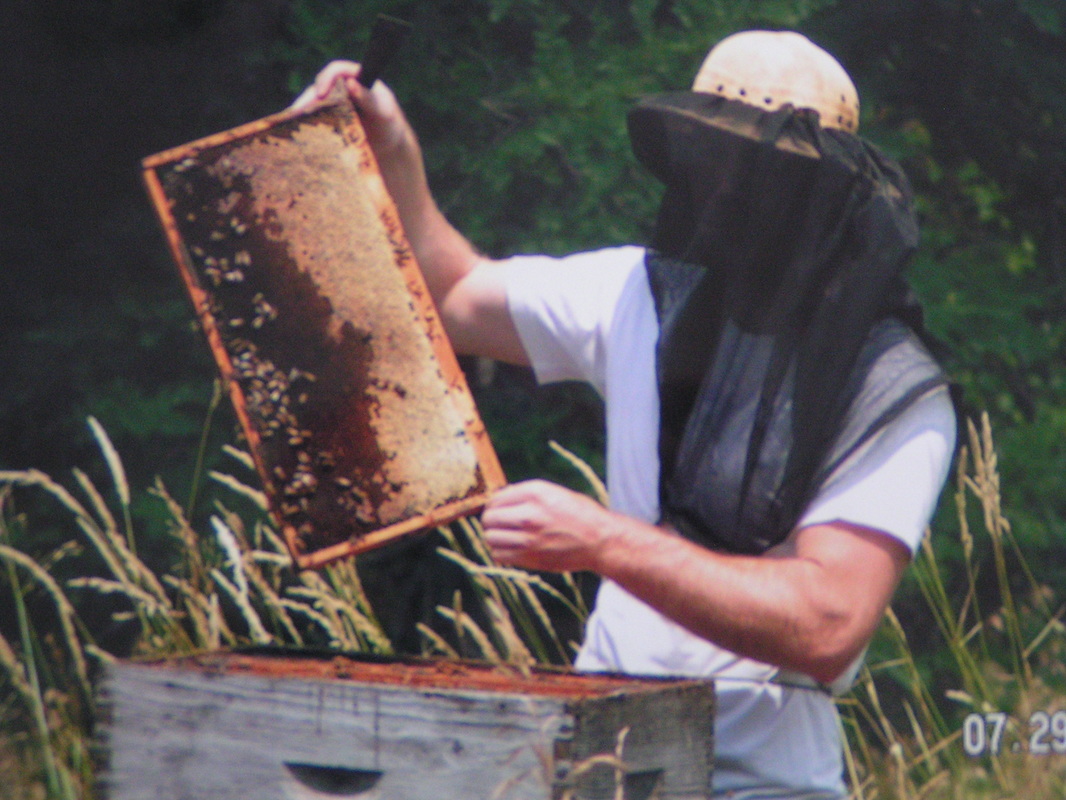Just ask David Hale (’15), a sophomore biology major. Hale has been studying the relationship between brain structure and cognitive function in honeybees since the summer after his freshman year.
He explains that as a honeybee ages, a pair of structures in its brain called mushroom bodies grow larger. Larger mushroom bodies may give older bees an advantage over their younger counterparts when it comes to learning and memorizing new things like the color of certain flowers. In nature, this would help older honeybees remember which flowers have more pollen, making them better foragers for the hive.
Hale went to biology professor and honeybee expert Susan Fahrbach to see if she would help him design a scientific study to investigate the phenomena.
With Fahrbach’s guidance, Hale designed a basic IQ test to see if older bees’ enlarged mushroom bodies make them more adept at associating color with reward.
After collecting bees of different ages and fitting them into a harness fashioned from a drinking straw, Hale exposed his tiny subjects to bursts of blue or green light from a projector to simulate different colored flower patches.
A flash of blue light signaled a sugary reward. A flash of green light signaled no reward. Hale put each bee through 20 trials and then reversed the experiment. His results showed that of the 64 bees that completed the test, older ones proved more capable at associating color with reward. The younger bees, the ones less than 10 days old, weren’t yet ready to learn.
Hale said putting together the experiment under Fahrbach’s guidance was the most challenging aspect of his collegiate career to date. His mentor took an available, yet hands-off approach, which allowed Hale to learn from his own mistakes.
'Instead of telling me what to do, professor Fahrbach told me to think outside of the box and come up with my own solution to the problems at hand,' Hale said."
Bee impressed at ACC Meeting of the Minds
By Will Ferguson

 RSS Feed
RSS Feed
